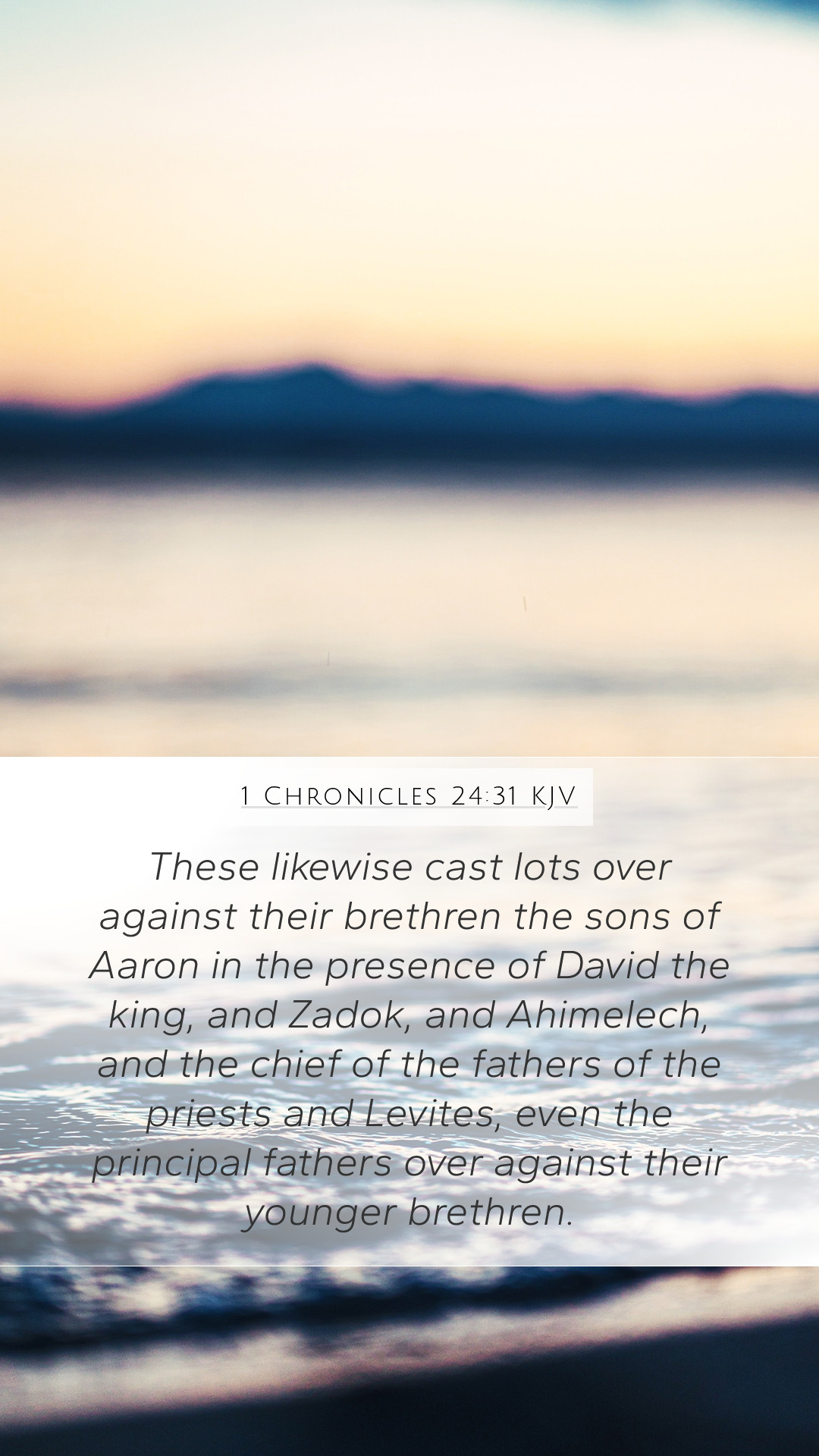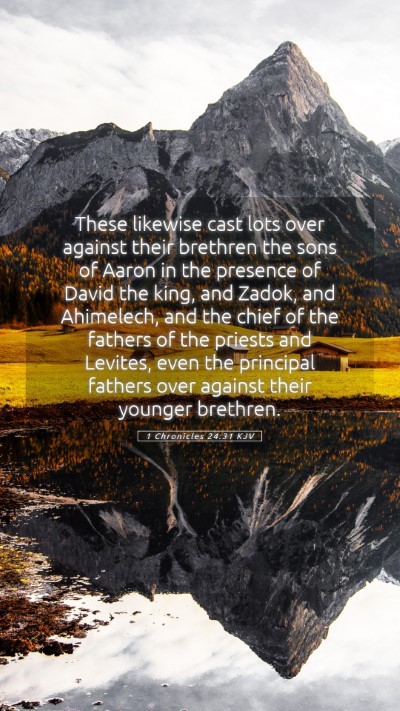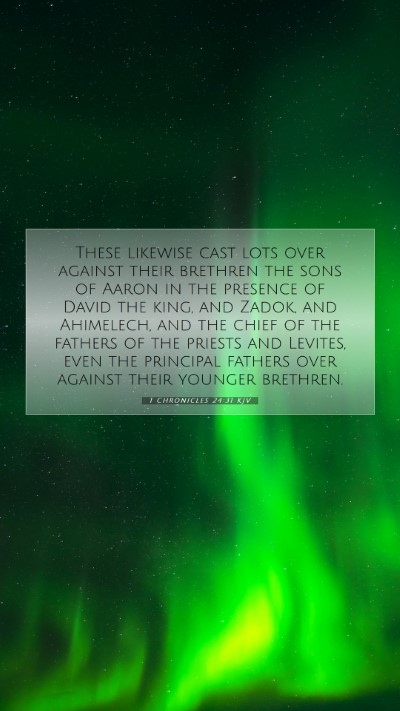Understanding 1 Chronicles 24:31
Bible Verse: 1 Chronicles 24:31 - "These likewise cast lots over against their brethren the sons of Aaron in the presence of king David, and Zadok, and Ahimelech, and the chief of the fathers of the priests and Levites, even the chief fathers over the families of the priests and over the Levites, even the principal fathers."
Meaning of 1 Chronicles 24:31
This verse appears in the context of the organization of the Levitical priesthood and the division of priestly duties. The casting of lots indicates a method used for determining the service assignments among the priests and Levites. Through insights from various public domain commentaries, we can discern deeper meanings and implications concerning this verse.
Contextual Analysis
Matthew Henry's Commentary: Henry notes that David's re-organization of the priesthood was critical for the spiritual order of Israel. By casting lots, no favoritism would skew the assignments, ensuring fairness and divine direction. It underscores God's involvement in identifying those who serve in sacred roles.
Albert Barnes' Notes: Barnes emphasizes the importance of this systematic approach to temple duties. He interprets this action as not just a bureaucratic necessity, but a significant spiritual act, demonstrating how critical leadership and organization were to maintaining religious observances among the Israelites.
Adam Clarke's Commentary: Clarke points out that the casting of lots also symbolizes reliance upon God's providence. It affirms that even in matters of administration and service, the community sought God's guidance, reflecting the overall theme of divine involvement in Israel's governance and worship practices.
Biblical Exegesis
This passage highlights significant themes of accountability and communal responsibility within the priestly order. The casting of lots stands as a powerful testament to the Israelites' desire to acknowledge God's will in every aspect of their lives, including the order of worship. This method provided a tangible connection between the human administration of the law and divine ordination.
Key Themes and Insights
- Divine Guidance: The casting of lots exemplifies the faith that the results would reflect God's choice and direction in appointing priests to their sacred responsibilities.
- Equity in Service: The method of random selection serves to eliminate biases and favoritism, reinforcing justice and equality within the religious structure of Israel.
- Historical Context: The organization of priests and Levites reflects the historical effort to reclaim and maintain proper worship after periods of neglect and idolatry.
Application for Today
In modern times, this verse and its implications encourage individuals and communities to ensure that their practices, especially in religious and spiritual matters, remain centered on fairness, integrity, and reliance on divine guidance. Congregations can consider how they can follow similar principles in their governance and worship assignments.
Practical Bible Study Insights
For those engaged in Bible study groups, this text provides a rich ground for conversation regarding how to implement systems of fairness and divine trust in contemporary church settings. Using Bible study tools and resources, one can explore how ancient practices influence modern worship and church management.
Related Bible Cross References
- 2 Chronicles 35:4 - Josiah’s organization of the priests
- Exodus 28:1 - God's selection of Aaron and his sons as priests
- Numbers 26:55-56 - The lot system described for the division of land
Conclusion
This exploration of 1 Chronicles 24:31 demonstrates that every element of the biblical text serves a purposeful role in depicting God's continued involvement in the lives of His people. Understanding this verse illuminates how ancient traditions can guide contemporary worship practices, enriching our Bible study lessons and personal spiritual development.


